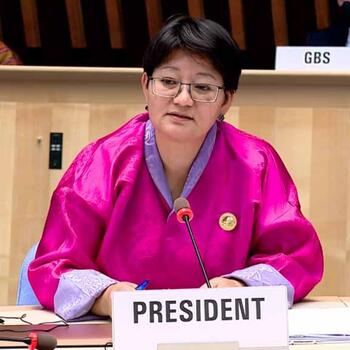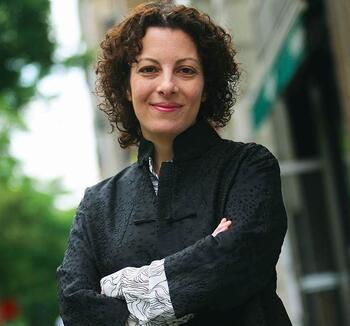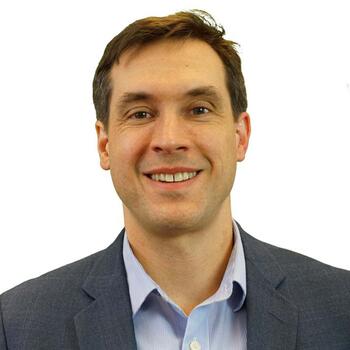Health System Strengthening during the Pandemic and Beyond: Views from the Minister of Health of Bhutan
Bhutan time: Friday, February 4th, 2022, 8am to 9am.
Asia Health Policy Program (AHPP) 2021-22 Colloquium series "Aligning Incentives for Better Health and More Resilient Health Systems in Asia”
The Minister of Health of Bhutan, Her Excellency Dasho Dechen Wangmo, will share her insights and experiences from managing the national health system during the COVID-19 crisis, serving as President of the 74th World Health Assembly, and her views on health system strengthening, innovative primary care, chronic disease control, health governance, and the global implications of the pandemic as it unfolds in its third year.

On 17th December 2020 in recognition of her outstanding service to the Nation, she was conferred the “Red Scarf”, one of highest honors a Bhutanese civilian can receive, by His Majesty the King. Her Excellency is a passionate public health advocate and social worker at heart. Hon’ble Lyonpo was nominated as the President of the 74th World Health Assembly (WHA) by Member States of the WHO’s South East Asia Region in 2020. She will hold the office of the President for a duration of one year and it is an honour bestowed on Bhutan for the first time since it became a member of the WHO in 1982.
In addition to her memberships in professional organizations, she is also a founder of the Bhutan Cancer Society, a CSO working for the well being of cancer patients in Bhutan, and a founding chairperson for Lhaksam, the HIV-positive network in the country. Her Excellency has a Master in Public Health (MPH) from Yale School of Public Health, New Haven, USA, and a Bachelor in Cardiopulmonary Science (magna cum laude) from Northeastern University, Boston, USA.
Via Zoom Webinar
Register: bit.ly/3G0tR4i




